
In order to understand and quantify the early impact of the Coronavirus pandemic and the pandemic induced lockdown, the National Data Innovation Centre conducted telephone surveys in both the urban and rural areas of Delhi National Capital Region (NCR). So far we have completed four rounds of Delhi NCR Coronavirus Telephone Survey (DCVTS). The widespread use of mobile phones in India provided us with the opportunity of conducting surveys remotely during the pandemic when there was a need for scientifically collected data for decision making. Moreover, the telephone mode of data collection coupled with computer-assisted technology satisfies the need of a quick turnaround in the absence of travel time and helps in measuring or informing policy responses in a timely manner.
The objectives of the first two rounds of DCVTS (DCVTS-1, April 3-6, 2020; & DCVTS-2, April 23-26, 2020) were to estimate the levels and changes over time in people’s knowledge, attitude, perception, and practiced behavior with respect to COVID-19. The surveys also estimated the impact of the Coronavirus pandemic on people’s, income, access to essential items, social life, and their coping mechanisms (NCAER National Data Innovation Centre 2020NCAER National Data Innovation Centre 2020 Desai and Pramanik April 29, 2020 Desai and Pramanik April 20, 2020; Mazumdar, Pramanik et al. May 24, 2020).
The third round, DCVTS-3, (June 15-23, 2020) focused on the ways in which the lockdowns have affected different occupational groups (Desai and Pramanik Jul 5, 2020) (Desai and Pramanik 05 Jul 2020), levels of distress and financial hardship experienced by households, how households access welfare measures during the early phases of the pandemic (Bornali Bhandari, Santanu Pramanik et al. August 3, 2020; Choudhuri and Desai November 28, 2020), challenges in getting back to work and remaining safe after the lockdowns were lifted, and trends in social distancing and risk perceptions as the lockdowns are eased.
DCVTS-4 (December 23, 2020 – January 4, 2021), launched right before the roll out of mass vaccination, explored issues such as vaccine hesitancy (Pramanik and Desai 2021, level of disruptions in routine healthcare, the extent of learning disruptions for children in the age group of 6-14 years (Banerji, Ashraf et al. February 20, 2021), occupational shifts during the pandemic, vulnerability among different occupational groups, and the levels of distress and financial hardship experienced by households and whether the most vulnerable households have had access to safety nets. An overview of the topics covered across different rounds of DCVTS is given in the figure below.
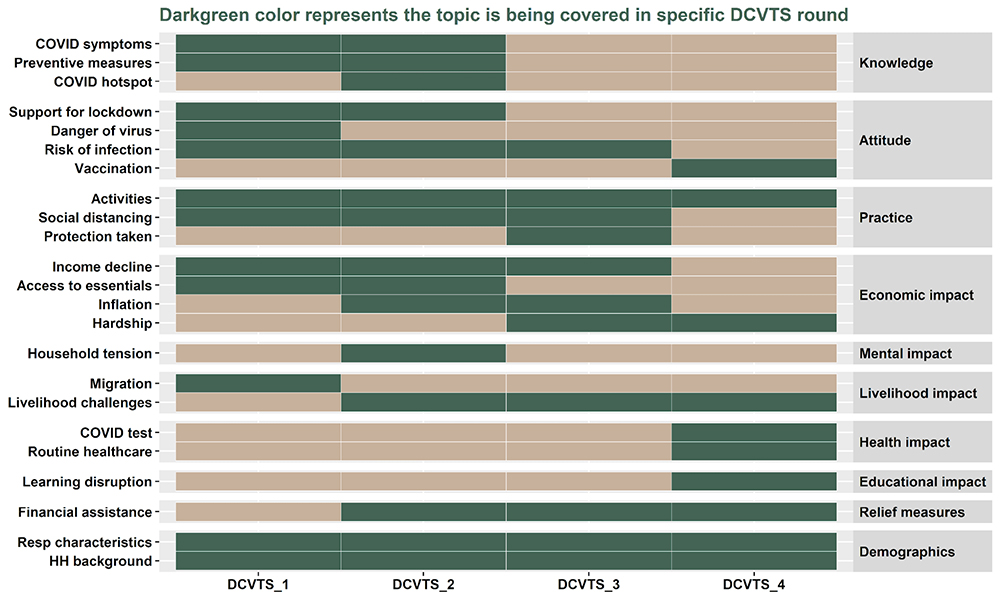

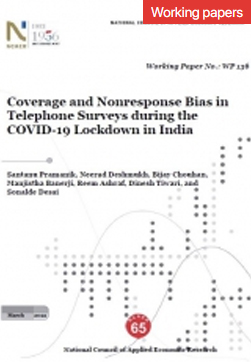
In the wake of the COVID-19 pandemic, telephone surveys have been used extensively for carrying out studies on health knowledge, morbidity, and mortality surveillance. In order to understand the extent of different sources of non-observation errors in telephone surveys, we compare the distributions of units covered in the sampling frame and survey respondents with those... Read More
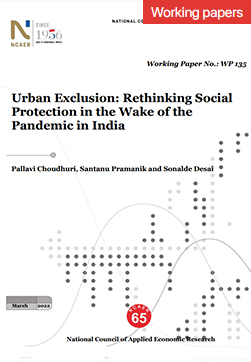
The COVID-19 pandemic, and the consequent nationwide lockdown in India that began on March 25, 2020, caused a major disruption in the labour market, leading to the widespread loss of livelihoods and food insecurity. The findings from a telephonic survey of a representative sample of more than 3,000 households in the National Capital Region (NCR)... Read More
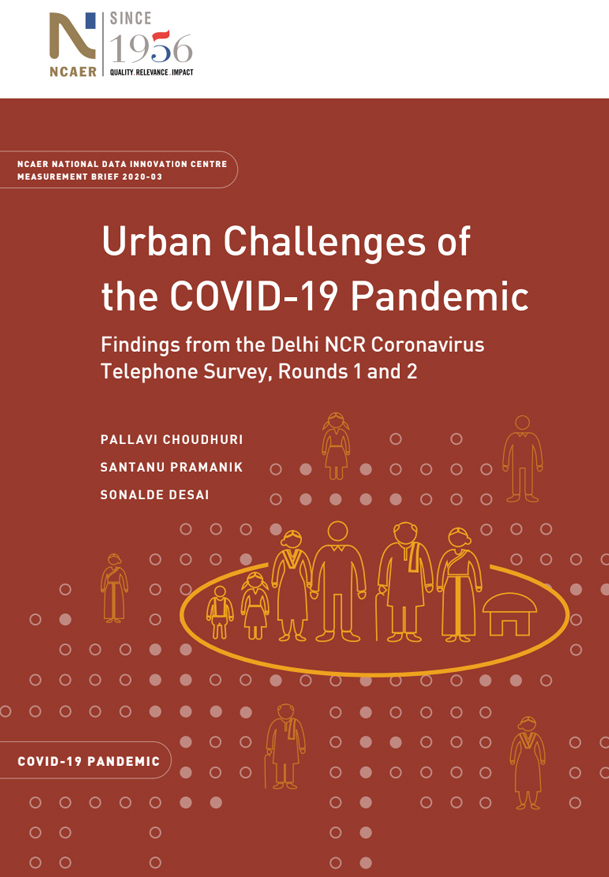
This is part of a series of Measurement Briefs from the NCAER National Data Innovation Centre. Based on the findings from the Delhi NCR Coronavirus Telephone Survey, Rounds 1 and 2, this particular Brief is set in the backdrop of the lockdown caused by the COVID-19 pandemic and the subsequent loss...
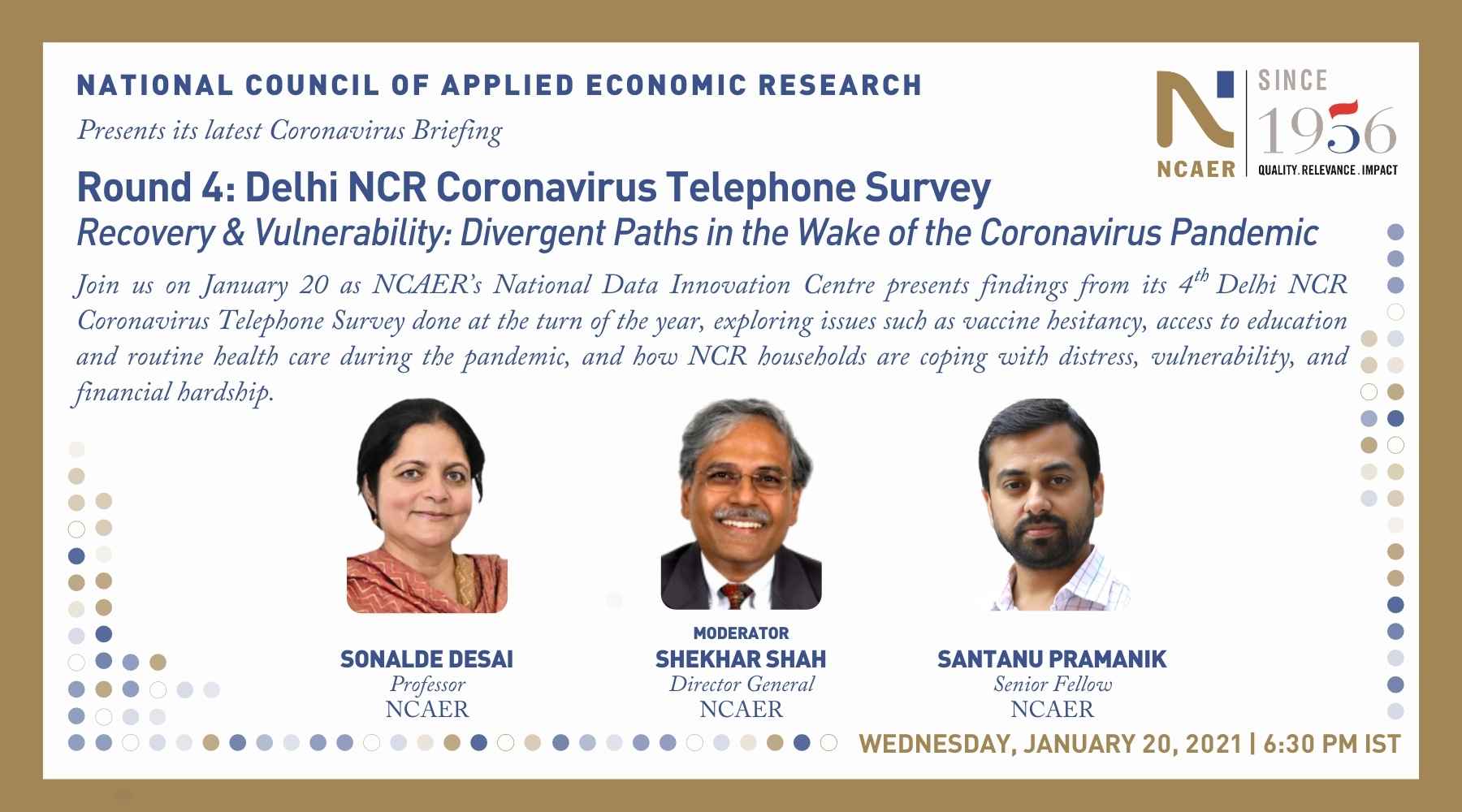
Recovery and Vulnerability: Divergent Paths in the Wake of the Coronavirus Pandemic As the nation hopefully begins its recovery from the Coronavirus pandemic through a massive vaccine rollout, assessing the speed of recovery in different arenas of life will require a better understanding of the overall impact of the pandemic and the level of willingness... Read More
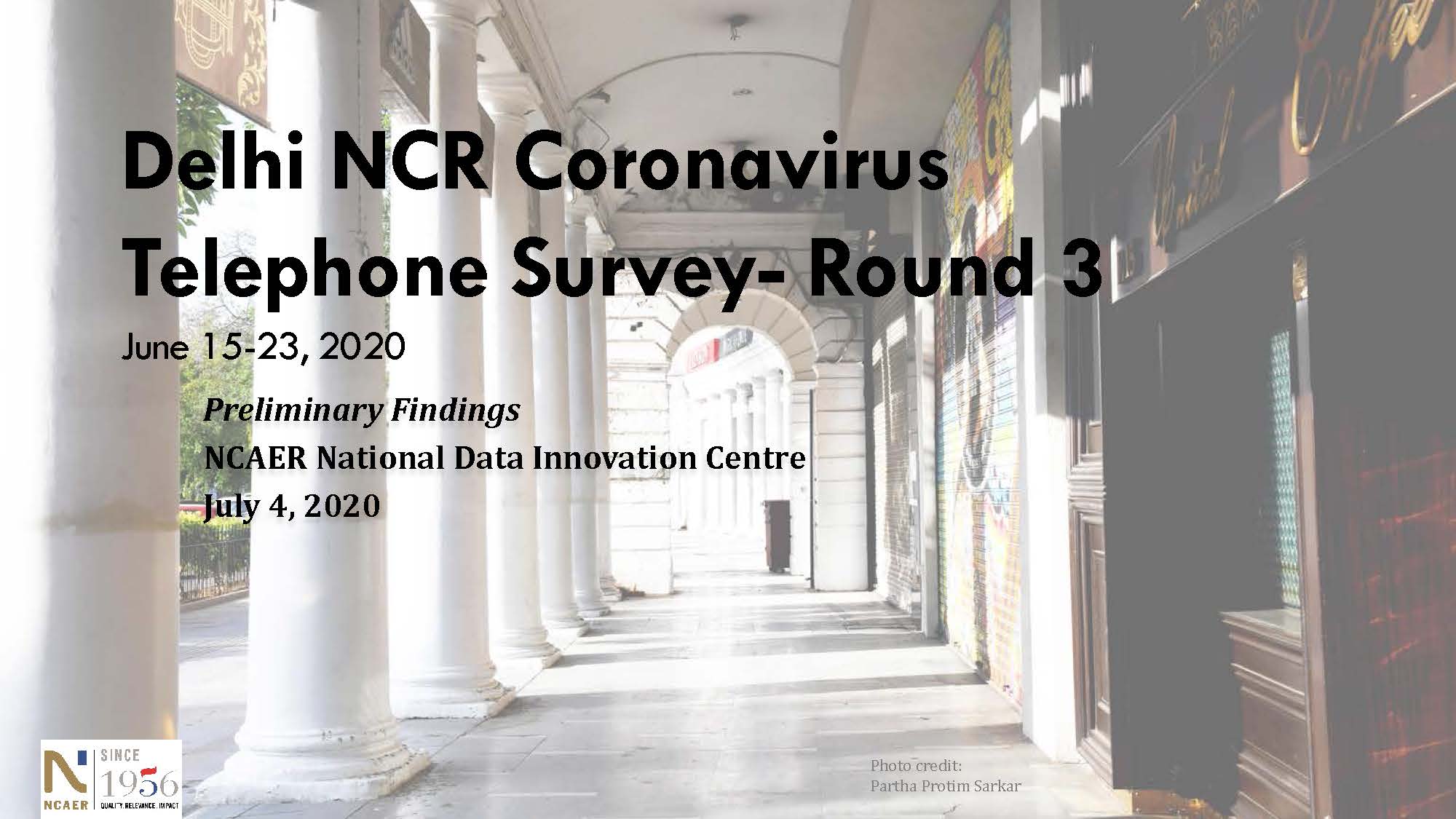
NCAER hosted Sonalde Desai and Santanu Pramanik from its National Data Innovation Centre to share the results of Round 3 of its rapid response Delhi NCR Coronavirus Telephone Survey (DCVTS-3) launched on June 15 and completed on June 23. NCAER Director General Shekhar Shah moderated the discussion. DCVTS-3 builds on DCVTS-1, fielded during April 3-6 (results released April 12), and DCVTS-2, fielded April... Read More
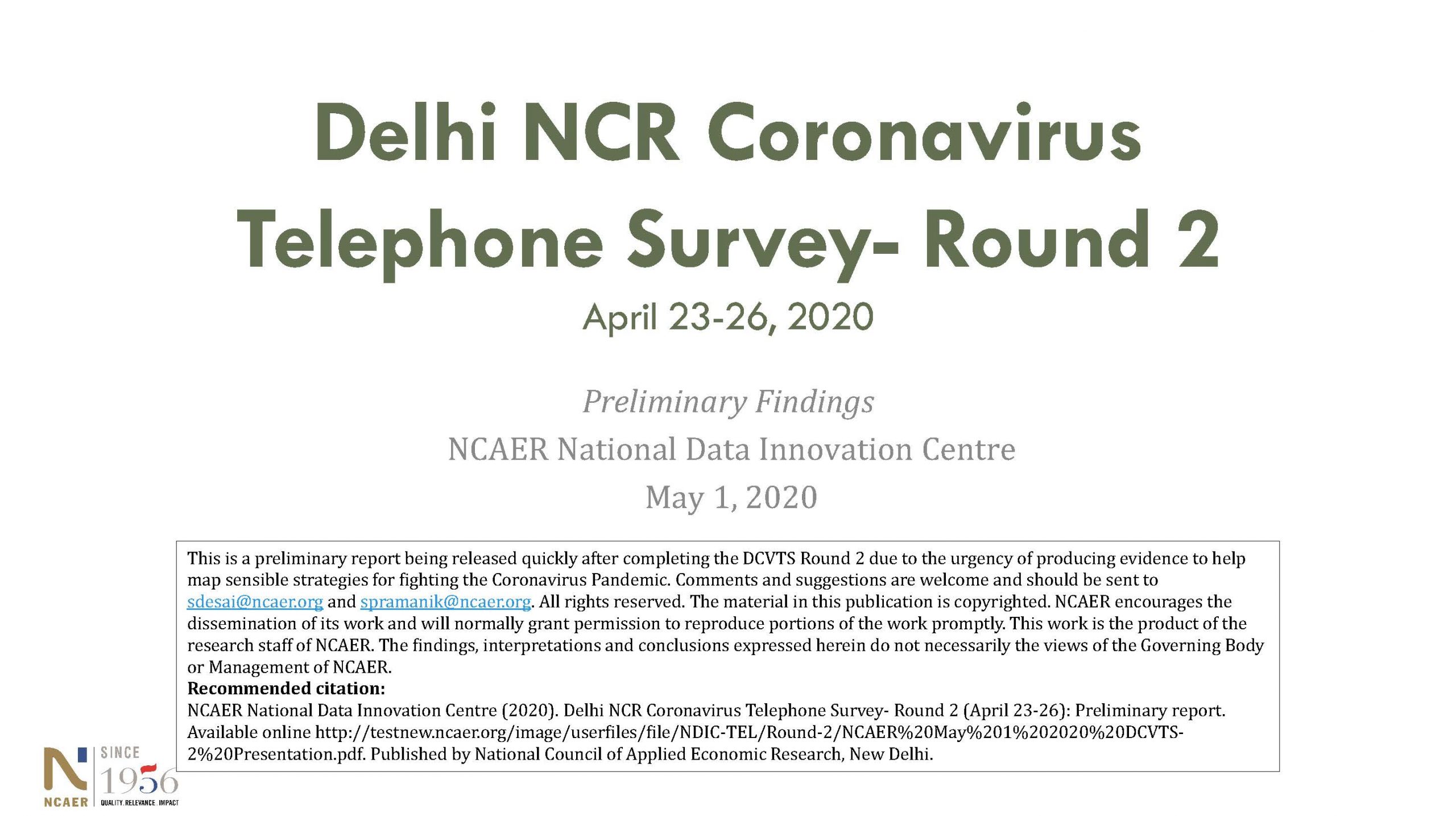
NCAER hosted Sonalde Desai and Santanu Pramanik from its National Data Innovation Centre to share the early results of Round 2 of its rapid response Delhi NCR Coronavirus Telephone Survey (DCVTS-2) launched on April 23, 2020, and completed on April 26. The discussion was moderated by NCAER Director General, Shekhar Shah. The Round 2 DCVTS... Read More
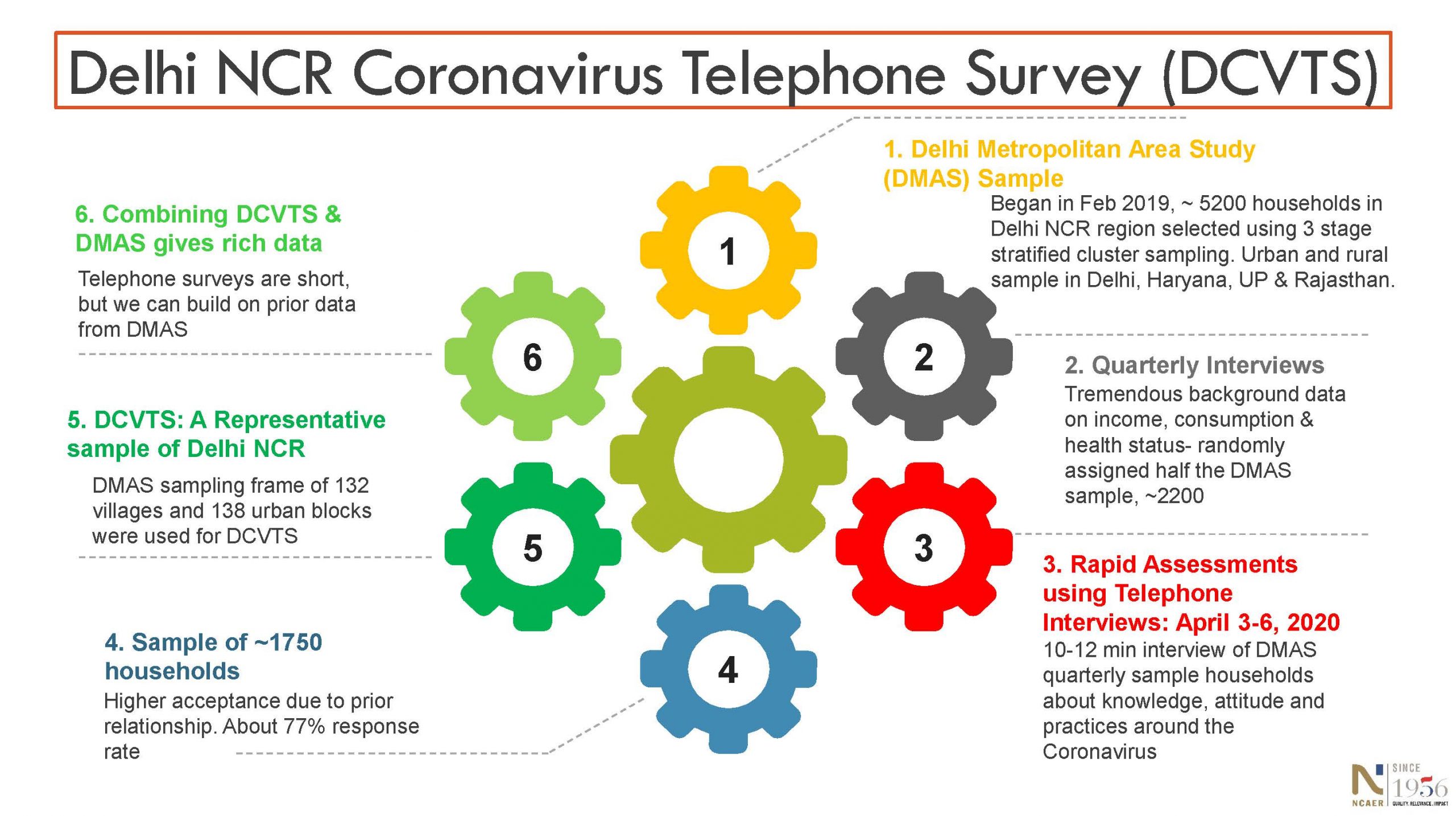
NCAER hosted a webinar by Sonalde Desai, Santanu Pramanik, and Dinesh Tiwari from its National Data Innovation Centre to share the results of its rapid response representative telephone survey in the Delhi NCR. The survey launched on April 3, 2020, 10 days after the lockout started was completed on April 6, 2020. The discussion attended by over 150... Read More
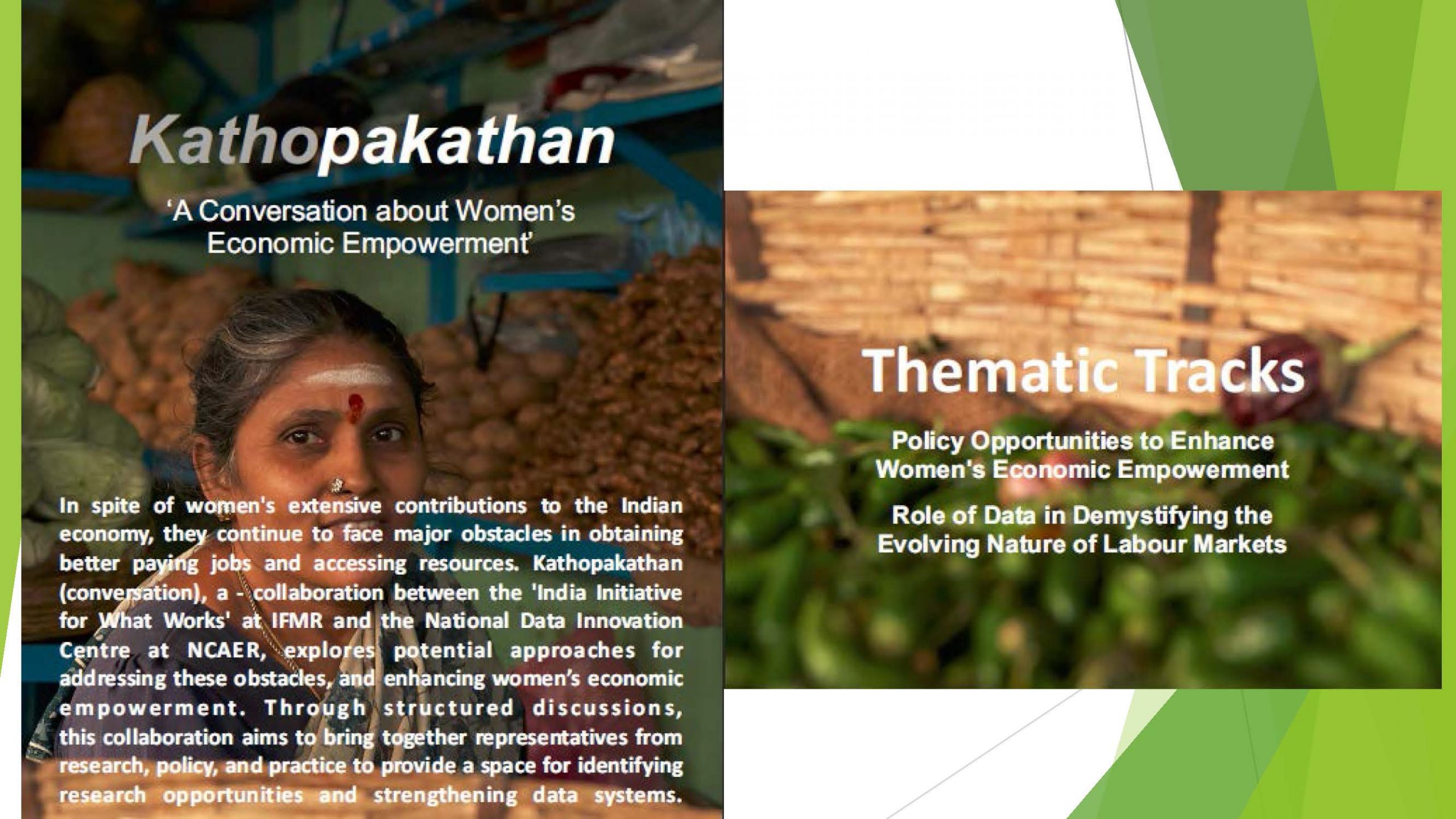
The NCAER-National Data Innovation Centre (NDIC) and Institute for Financial Management Research-India Initiative for What Works (IFMR-IIWW) jointly organised an initiative called Kathopakathan (conversation) on Women’s Economic Empowerment at the Viceregal Hall, The Claridges, New Delhi, on March 24, 2018. NCAER-NDIC seeks to develop innovative approaches to collecting data for development, including data on gender, while IFMR-IIWW focuses... Read More